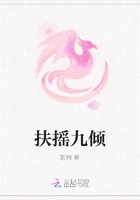"Is it possible that he, too, was for rejecting the appeal?
Mariette asked with real sympathy. "It is dreadful. How sorry I am for her," she added with a sigh.
He frowned, and in order to change the subject began to speak about Shoustova, who had been imprisoned in the fortress and was now set free through the influence of Mariette's husband. He thanked her for her trouble, and was going on to say how dreadful he thought it, that this woman and the whole of her family had suffered merely, because no one had reminded the authorities about them, but Mariette interrupted him and expressed her own indignation.
"Say nothing about it to me," she said. "When my husband told me she could be set free, it was this that struck me, 'What was she kept in prison for if she is innocent?'" She went on expressing what Nekhludoff was about to say.
"It is revolting--revolting."
Countess Katerina Ivanovna noticed that Mariette was coquetting with her nephew, and this amused her. "What do you think?" she said, when they were silent. "Supposing you come to Aline's to-morrow night. Kiesewetter will be there. And you, too," she said, turning to Mariette. "Il vous a remarque," she went on to her nephew. "He told me that what you say (I repeated it all to him) is a very good sign, and that you will certainly come to Christ. You must come absolutely. Tell him to, Mariette, and come yourself."
"Countess, in the first place, I have no right whatever to give any kind of advice to the Prince," said Mariette, and gave Nekhludoff a look that somehow established a full comprehension between them of their attitude in relation to the Countess's words and evangelicalism in general. "Secondly, I do not much care, you know."
Yes, I know you always do things the wrong way round, and according to your own ideas."
"My own ideas? I have faith like the most ****** peasant woman," said Mariette with a smile. "And, thirdly, I am going to the French Theatre to-morrow night."
"Ah! And have you seen that--What's her name?" asked Countess Katerina Ivanovna. Mariette gave the name of a celebrated French actress.
"You must go, most decidedly; she is wonderful."
"Whom am I to see first, ma tante--the actress or the preacher?"
Nekhludoff said with a smile.
"Please don't catch at my words."
"I should think the preacher first and then the actress, or else the desire for the sermon might vanish altogether," said Nekhludoff.
"No; better begin with the French Theatre, and do penance afterwards."
"Now, then, you are not to hold me up for ridicule. The preacher is the preacher and the theatre is the theatre. One need not weep in order to be saved. One must have faith, and then one is sure to be gay."
"You, ma tante, preach better than any preacher."
"Do you know what?" said Mariette. "Come into my box to-morrow."
"I am afraid I shall not be able to."
The footman interrupted the conversation by announcing a visitor.
It was the secretary of a philanthropic society of which the Countess was president.
"Oh, that is the dullest of men. I think I shall receive him out there, and return to you later on. Mariette, give him his tea," said the Countess, and left the room, with her quick, wriggling walk.
Mariette took the glove off her firm, rather flat hand, the fourth finger of which was covered with rings.
"Want any?" she said, taking hold of the silver teapot, under which a spirit lamp was burning, and extending her little finger curiously. Her face looked sad and serious.
"It is always terribly painful to me to notice that people whose opinion I value confound me with the position I am placed in."















